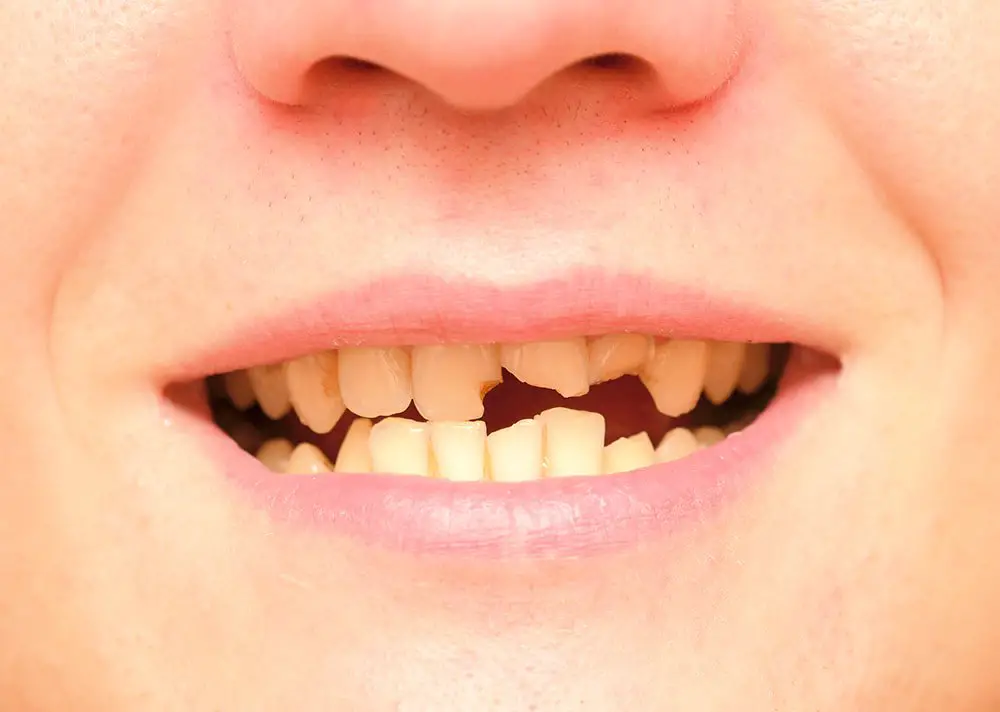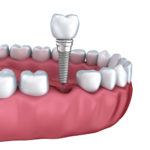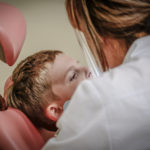Table of Contents
We all know how kids can get when they’re in school or with friends. They’d be jumping on trampolines, racing their bikes, or in the case of older children, playing contact sports. All that activity, while good for their health and well-being, means they are more at risk of injuries and dental emergencies.
No one wants their children to get hurt in any way, but accidents do happen, and it could happen to your child. Your kid could fall off his or her bike, or be at the receiving end of a wayward elbow in the playing field. These accidents could lead to a dental emergency, and it would help if you are prepared to deal with it.
Stay calm
One of the first things we have to do when our child suffers a dental emergency is to keep calm. We know how much you love your child, but panicking and being hysterical about it is not helping anyone, especially your hurting kid. Keeping yourself composed throughout the whole thing can yield better results for you and your child.
Knocked-out permanent tooth
When an accident on the playground or at home knocks out a permanent tooth, you should waste no time in picking it up by the crown—not the roots—and rinsing it with cold water because the dentist can still save it. Unless your dentist’s office is right across the street from your home, you need to find a way to preserve that tooth. Putting it in your child’s mouth in the open socket is an option, although getting a cup of cold milk or water and placing the tooth in it would also be a good idea. Both should keep the tooth moist long enough for you and your child to reach the dentist and have it re-implanted.
Ideally, that trip to the dentist should not take more than 30 minutes to boost the chances of a successful re-implantation.
Chipped, cracked, or broken tooth

Let’s say your child fell on his or her face during a game of touch football and chipped a tooth. If you can still find the piece of the tooth that broke off, retrieve it, rinse it in warm water, and put it in a glass of cold milk. You can also use cold water if there’s no milk around.
Before bringing your child to the dentist, help him rinse his or her mouth with warm water to make sure no small tooth fragments are left inside the mouth. If your child’s mouth starts to swell from the impact of the fall, you can relieve the swelling by applying a cold compress to the affected area. You should also keep a close eye on your child because the broken tooth inside the mouth could be sharp or pointed enough to cut his or her lips and become infected.
Broken jaw
A fractured jaw is more than just a dental emergency; it’s a full-blown medical emergency. Your child needs immediate medical attention so you must call 911 right away. While waiting for help, keep your child relaxed and seated in a reclining position. A cold compress can help relieve any swelling.
Toothaches
A toothache may not be as jarring as an accident, but it can be a dental emergency nonetheless. If your child complains of pain in a tooth or the jaw, inspect his or her mouth and see what’s causing the pain. It could be something stuck between the teeth, or maybe their gums are swollen, although it’s not very common among children. Have your child gargle a warm salt water solution to relieve the pain. You can also opt to give your child anti-inflammatory medication in suspension form that’s specifically for children. If the pain persists, make an appointment with the family dentist the soonest possible time.
Avoiding dental emergencies
No one can really prevent accidents that cause dental emergencies, but taking steps to make the likelihood of them from happening is the smartest thing you can do as a parent.
If your child plays sports, make sure that he or she always wears a mouthguard, which can protect not only their teeth, but their lips, gums, and cheeks as well.
When you have your child in the car, never forget to secure him or her with the seatbelt. You should also instill in your child the importance of always wearing seatbelts so he will never forget doing the same as he grows up.
Most importantly, do all you can to reduce the risk of your child tripping, slipping, and falling at home. Clearing clutter that they could trip on, and putting skid-resistant carpet treads on the stairs are just a couple of things you can do in that regard.
Your child will likely be terrified and in pain during a dental emergency, but your calmness and decisiveness in dealing with the situation can bring them a huge measure of comfort on the way to the dentist’s office.







